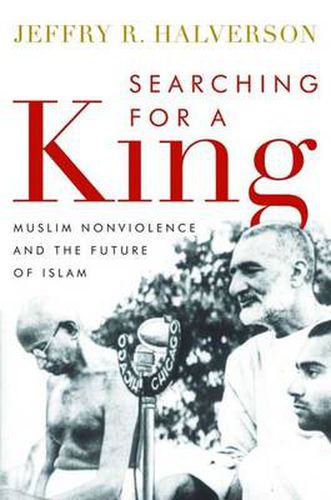Readings Newsletter
Become a Readings Member to make your shopping experience even easier.
Sign in or sign up for free!
You’re not far away from qualifying for FREE standard shipping within Australia
You’ve qualified for FREE standard shipping within Australia
The cart is loading…






This title rejects the narrative of violence in Islam’s history, not as a matter of fact - this narrative clearly exists, as Halverson demonstrates - but rather as a matter of choice, presenting peaceful nonviolence as a new way forward for Muslims. It explores the lives and teachings of Muslim scholars and activists who champion nonviolent interpretations of Islam, including Jawdat Saeed (Syria), Wahiduddin Khan (India), Grand Ayatollah Muhammad Shirazi (Iraq), Mahmoud Muhammad Taha (Sudan), and Abdul-Ghaffar Khan (Afghanistan/Pakistan). It argues that nonviolence is critical to prosperity for the Muslim world. At a time when violent images of the Muslim world dominate our headlines, Western audiences are growing increasingly interested in a different picture of Islam, specifically the idea of Muslim nonviolence, and what it could mean for the world. But is nonviolence compatible with the teachings of Islam? Is it practical to suggest that Muslim societies must adopt nonviolence to thrive in today’s world? Where is the Muslim equivalent of a Mahatma Gandhi or Martin Luther King Jr?
Searching for a King offers a comprehensive look into Islamic conceptions of nonviolence, its modern champions, and their readings of Islam’s sacred texts, including the Qur'an and traditions of the Prophet Muhammad. Jeffry R. Halverson asserts that the foundation for nonviolence in Islam already exists. He points to the exemplary lives and teachings of modern Muslim champions of nonviolence, little known in the Western world. Using rich historical narratives and data from leading international agencies, he also makes the case that by eliminating the high costs of warfare, nonviolence opens the door to such important complementary initiatives as micro financing and women’s education programs. Ultimately, Halverson endorses Muslim champions of nonviolence and argues for the formulation of a nonviolent version of jihad as an active mode of social transformation.
$9.00 standard shipping within Australia
FREE standard shipping within Australia for orders over $100.00
Express & International shipping calculated at checkout
This title rejects the narrative of violence in Islam’s history, not as a matter of fact - this narrative clearly exists, as Halverson demonstrates - but rather as a matter of choice, presenting peaceful nonviolence as a new way forward for Muslims. It explores the lives and teachings of Muslim scholars and activists who champion nonviolent interpretations of Islam, including Jawdat Saeed (Syria), Wahiduddin Khan (India), Grand Ayatollah Muhammad Shirazi (Iraq), Mahmoud Muhammad Taha (Sudan), and Abdul-Ghaffar Khan (Afghanistan/Pakistan). It argues that nonviolence is critical to prosperity for the Muslim world. At a time when violent images of the Muslim world dominate our headlines, Western audiences are growing increasingly interested in a different picture of Islam, specifically the idea of Muslim nonviolence, and what it could mean for the world. But is nonviolence compatible with the teachings of Islam? Is it practical to suggest that Muslim societies must adopt nonviolence to thrive in today’s world? Where is the Muslim equivalent of a Mahatma Gandhi or Martin Luther King Jr?
Searching for a King offers a comprehensive look into Islamic conceptions of nonviolence, its modern champions, and their readings of Islam’s sacred texts, including the Qur'an and traditions of the Prophet Muhammad. Jeffry R. Halverson asserts that the foundation for nonviolence in Islam already exists. He points to the exemplary lives and teachings of modern Muslim champions of nonviolence, little known in the Western world. Using rich historical narratives and data from leading international agencies, he also makes the case that by eliminating the high costs of warfare, nonviolence opens the door to such important complementary initiatives as micro financing and women’s education programs. Ultimately, Halverson endorses Muslim champions of nonviolence and argues for the formulation of a nonviolent version of jihad as an active mode of social transformation.